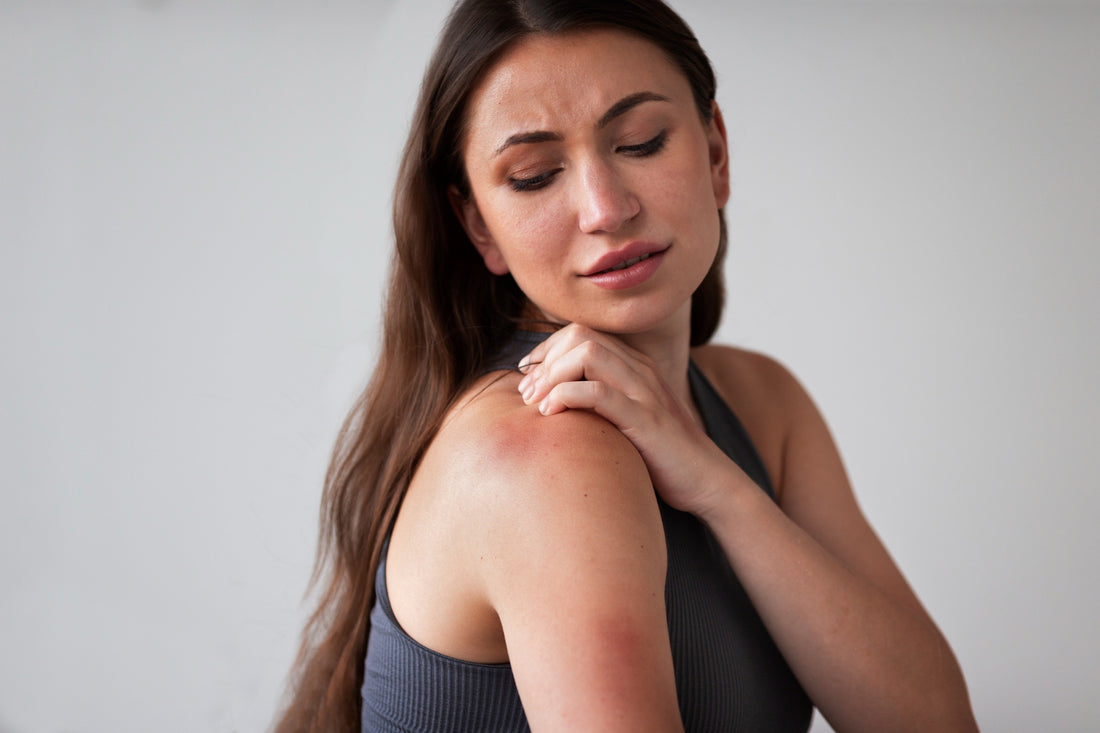After using a new skincare product, if you have hives, swelling, or an itchy, red rash, you probably are experiencing an allergic reaction. However, there are more ways in which some ingredients cause irritation to the skin.
Else, your skin may also show dull, dry, flaky, or rash-like “spots” if it doesn’t like one or more of the components in your moisturiser or eye cream.
Dermatologists would classify the first reaction as allergic contact dermatitis as a natural allergic reaction. Your body then releases proteins to aid in fighting off the allergen. The second reaction, known as irritant contact dermatitis, happens when a specific component irritates the skin, and symptoms only manifest on the area of the body to which the skincare was applied.
Neither form of dermatitis manifests when you use a new skincare product for the first time. The reactions typically follow on the second or third try, which makes it challenging to determine what triggered them. Reactions can also take one to two days to manifest after exposure. However, you’ll discover that reactions frequently happen instantly in severe allergic reactions that can be life threatening.
If you recognise any of these symptoms, you must find out which skincare ingredients you are allergic to. While this may seem complicated, you can consult a dermatologist. ,
Additionally, ingredients commonly used in skincare have shown evidence to cause sensitivity.
Let’s look at some of the most common skincare irritants:
- Fragrances
Even though fragrances added to our skincare products are composed of hundreds or thousands of compounds, ingredient lists only identify them as a single item. Even though many of these chemicals are not allergens, they can irritate the skin and induce an allergic reaction.
- Preservatives
Synthetic preservatives are one of the most common skincare irritants that frequently cause contact dermatitis. Several less irritating preservatives can and are used instead of synthetic ones, which are necessary to prevent your skincare purchases from quickly going rancid.
- Food allergens
Ensure your skincare doesn’t contain elements that could cause a reaction if you have food sensitivities or allergies. For instance, gluten is frequently used in skin care products as an emollient, moisturiser, and exfoliant; therefore, if you have celiac disease or gluten sensitivity, you should avoid it. Another food item widely used in cosmetics is nut oils, which can be severe allergies and irritants for different people.
- Essential oils
Remember that natural isn't necessarily better when you look for skincare products. Essential oils are natural, but they can irritate some people, notably in the form of rashes. In addition to giving your skincare a lovely aroma, essential oils may address various skin issues, including wrinkles, acne, and pigmentation. Hence, known as one of the most common skincare irritants. Skin irritation has been associated with tea tree oil, peppermint, ylang-ylang, clove, cinnamon, and cassia essential oils.
- Sulfates
Since detergents like sodium laureth sulphate and sodium laurel sulphate are included in everything from shampoo and body wash, you might try avoiding them if you frequently experience eye and/or skin irritation. These are some common irritants for the skin that can lead to eye discomfort, rashes, and skin imperfections. Additionally, they are quite drying to your skin and hair.
Are you looking for skincare that doesn’t include such common irritants? Check out Cerulean skincare.

